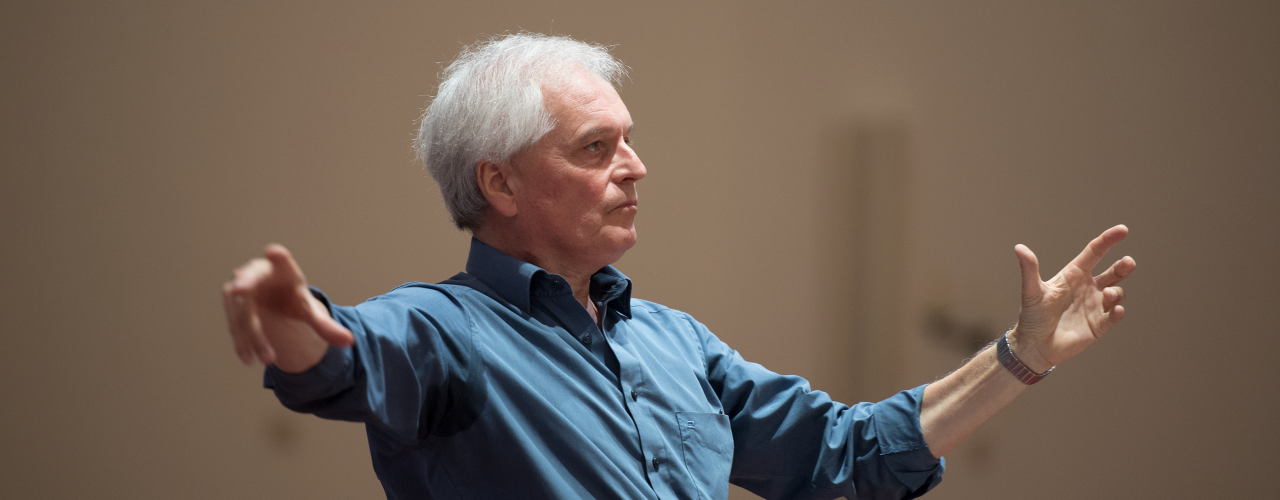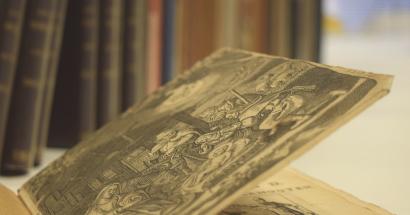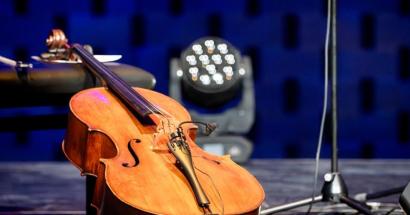
Interview Dirk Vermeulen
Thursday the 1st of March and Friday the 2nd of March the Koninklijk Conservatorium Brussel is proud to present its festive Tchiakovsky 5 production with conductor Dirk Vermeulen. On the occasion of this concert, the 50th anniversary of the Conservatoire and the nearing retirement of Dirk as a professor at the KCB, we asked him some questions:
Hello Dirk, it all started for you at the KCB and soon you will retire as a professor here. What is the story behind this long relationship with the Koninklijk Conservatorium Brussel?
Let me start off by saying that it feels like a complete circle at the KCB. After 17 years of teaching, I feel that I'm able to conclude a beautiful story at the Conservatoire of my heart.
I started here when I was 15 years old in 1967 as a violin student. Back then I enrolled at the Conservatoire Royal de Bruxelles and all classes were taught in French. I vividly remember the Solfege classes with my colleague Guy Van Waes given by our professor Max van der Maesbruggen. Not much later the Flemish Conservatoire, the present KCB was formed. There we got our education from numerous renowned professors like Raphael D’haene and Arie van Lysebeth, both later directors of the institution.
After the conclusion of my studies I started my musical adventure. As a soloist I collaborated with numerous conductors and I played a great amount of Chamber Music.
When I was 30 I had to stop playing on the highest level due to a physical condition that affected my hand. This was in many ways a turning point in my carreer. Although I kept playing (I’m still an active member of the Orkest van de Achtiende Eeuw from the late Frans Brüggen) I decided to focus more on conducting and I believe I’m able to present a strong CV as a conductor.
Can you tell us a bit more about your return to the KCB?
In the year 2000 I was invited by Arie Van Lysebeth to return to the place where it all started for me: the Conservatoire of Brussels. I’m still very grateful to Arie for this invitation. It’s thanks to him that I was able to continue teaching the classes that I was really passionate about from the beginning: Chamber Music. It has been fantastic to share my experiences as chamber musician with all my students.
What are the biggest changes that you have witnessed over the last 50 years? What has changed in the manner of teaching?
Back in the day classes were taught from gut-feeling and intuition. My Violin teacher, for example, never used the word 'Sonata Form'. The structure of the works got much less attention, excluding some exceptions. Today we treat music in a more intellectual and academic manner with the rising importance of academisation. The analysis of the score has become much more important today and yet it is my old teacher Victor Legley who sparked my interest in the structure of scores. He talked about music in very passionate manner and showed me how great these pieces are constructed and layered.
On the 1th and 2nd of March you will conduct the Tchiakovsky 5 production, what can we expect from this night?
Well this concert is the end of a long and fascinating journey with the KCB symphonic orchestra. I enjoy working with young people, which is a lot more demanding that working with a professional orchestra but also much more rewarding. They approach the music with a type of un-preconceived curiosity which is extremely enriching for the performance.
During the concert we will perform the Ouverture from ‘Die Zauberflöte’ from Mozart, an opera that I had the pleasure of conducting on numerous occasions. The richness and depth of this piece is just fantastic and it has a very distinct atmosphere.
I don’t always appreciate the pieces of Paul Hindemith but the Concerto for Clarinet that we will perform is an exception. It’s much fresher than most of his other work in my opinion. Soloist Adrián Hernández Altelarrea will have a chance to shine in this versatile piece in 4 parts.
I already conducted the 5th symphony of Tchiakovsky with the Orchestra of Murcia in Spain and it gave me such a great and powerful feeling that I was immediately very eager do it over again. The piece has a great depth and power and it’s just great to transfer this onto our students.
I assume that you will not sit still after your retirement at the KCB? What are the plans for the coming years?
My agenda is indeed very busy: Four days after the anniversary concert I’ll conduct Händels Messiah in the same hall. Executed by the choir-and Baroque orchestra New Baroque Times and 4 young soloists. I’m also looking forward to the collaboration with the Cello Biënalle Amsterdam later this year: In the Muziekgebouw aan het IJ I’ll perform a concert with the Conservatorium Amsterdam and 3 cellists as soloist and I’m also conducting the finale of the National Cello Concours. In addition to that I’m also invited back to conduct the Iceland Sympony Orchestra for the second time.
I’m retiring from the KCB as a teacher but I hope to return on a regular basis, hopefully as a conductor.
Thank you for your time Dirk! We look forward to the concert on the 1st and 2nd of March
Places for the concerts are still available. Reservation is possible via communicatie.kcb@ehb.be. Practical information can be found here.

